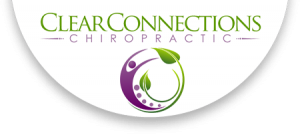Honey, particularly in its raw form, offers unique health benefits that you didn’t know.
Here are the five things you didn’t know about honey:
1. Honey Makes an Excellent Cough ” Medicine”
The World Health Organization (WHO) lists honey as a demulcent, which is a substance that relieves irritation in your mouth or throat by forming a protective film. Research shows honey works as well as dextromethorphan, a common ingredient in over the counter cough medications, to soothe a cough and related sleeping difficulties due to upper respiratory tract infections in children.
2. Honey Can Treat Wounds
Honey was a conventional therapy in fighting infection up until the early 20th century, at which time its use slowly vanished with the advent of penicillin. Now the use of honey in wound care is regaining popularity, as researchers are determining exactly how honey can help fight serious skin infections. Honey has antibacterial, antifungal, and antioxidants activities that make it ideal for treating wounds. In the US, Derma Sciences uses Manuka honey for their Medihoney wound and burn dressings.
Manuka honey is made with pollen gathered from the flowers of the Manuka bush (a medicinal plant), and clinical trials have found this type of honey can effectively eradicate more than 250 clinical strains of bacteria, including resistant varieties such as:
- MRSA (methicillin-resistant Staphylococcus aureus)
- MSSA (methicillin-sensitive Staphylococcus aureus)
- VRE (vancomycin-resistant enterococci)
Compared to other types of honey, Manuka has an extra ingredient with antimicrobial qualities, called the Unique Manuka Factor (UMF). It is so called because no one has yet been able to discover the unique substance involved that gives it its extraordinary antibacterial activity.
Honey releases hydrogen peroxide through an enzymatic process, which explains its general antiseptic qualities, but active Manuka honey contains “something else” that makes it far superior to other types of honey when it comes to killing off bacteria. Research shows that any type of unprocessed honey helped wounds and ulcers heal. In one study, 58 of 59 wounds showed “remarkable improvement following topical application of honey.”
3. Honey Improves Your Scalp
Honey diluted with a bit of warm water was shown to significantly improve seborrheic dermatitis, which is a scalp condition that causes dandruff and itching. After applying the solution every other day for four weeks, the itching was relieved and scaling was disappeared within one week. Skin lesions were healed and disappeared completely within 2 weeks. In addition, research studies showed subjective improvement in hair loss.
4. Help Boost Your Energy
A healthy, whole-food diet and proper sleep is the best recipe for boundless energy, but if you’re looking for a quick energy boost, such as before or after a workout, honey can suffice. This is particularly true for athletes looking for a “time-released fuel” to provide energy over a longer duration.
5. Reduce Allergy Symptoms
Locally produced honey, which will contain pollen spores picked up by the bees from local plants, introduces a small amount of allergen into your system. Theoretically, this can activate your immune system and over time can build up your natural immunity against it. The typical recommendation is to take about a teaspoon-full of locally produced honey per day, starting a few months PRIOR to the pollen season, to allow your system to build up immunity. And the key here is local.
May…Bee you are well versed on your Bee fun and facts, but I bet you just learned something new. If there are some more fun and interesting bee facts please share by posting a comment below! Have a great day and Bee Well!
Yours in Health,
Team at CCC
